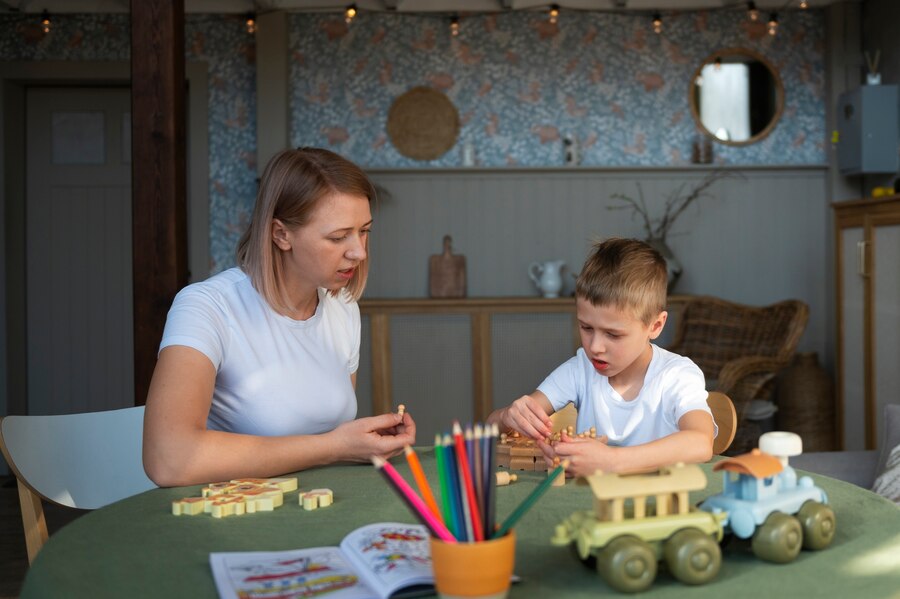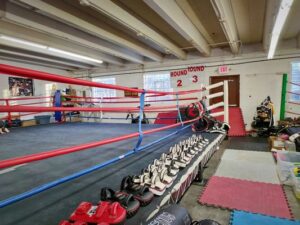Montessori education nurtures child learning that involves freedom, work, hands-on learning, and respect to improve a child’s natural development. Preparing a child for this transformative educational experience ensures smooth entry and success after school life. With an interest in enrolling your child in Montessori schools like Capstone Montessori School, it is important to familiarize yourself with its different methodologies in advancing proactive preparations for a child.
This blog will guide parents on how to prepare their child for Montessori education.
What is Montessori Education?
To start preparing, one has to know what makes Montessori education special. Initiated by Dr. Maria Montessori during the first years of the 20th century, this form of teaching concentrates on:
- Individualized Learning: Every child learns independently.
- Practical Life Skill: Skills such as pouring, cleaning, and organizing are taught.
- Hands-on Materials or Specific Tools: Designed for each lesson.
- Independence and Choice: The children decide what to do in a guided environment.
- Respect for the Child: Teachers respect every child’s individual growth, preferences, and needs.
Why Preparing Your Child Matters
A transition to a Montessori classroom is a big transition for both the child and the parent. The teaching style, classroom, and daily routine may all be different from traditional schools. Preparing your child beforehand will streamline the transition.
How to Get Your Child Ready for Montessori School
Teach Independence at Home
Montessori schooling promotes independence. Begin with making your child perform age-related tasks on their own.
- Dressing Themselves: Encourage your child to use a button, zip, or tie their clothes.
- Self-Feeding: Encourage your child in activities like using a utensil and filling a glass with water.
- Put Away Belongings: Engage your child in putting toys away or cleaning their room.
These activities build confidence and prepare your child to move into the structured independence of a Montessori class.
Nurture a Love for Learning
Montessori education is based on curiosity and intrinsic motivation. You can teach this by:
- Reading together on a daily basis to foster a love for books and stories.
- Offering toys and puzzles for problem-solving.
- Encouraging exploration through nature exploration, art projects, and creative play.
- It will create a sense of curiosity in your child about the Montessori exercises.
Fine and Gross Motor Skills Development
Montessori classrooms incorporate activities that demand the use of fine and gross motor skills. To prepare your child:
- Encourage activities such as threading beads, building with blocks, or using scissors.
- Encourage gross motor skills by climbing, running, and jumping to play outside.
- Introduce practical life exercises like scooping, pouring, or peeling fruits.
- These activities improve coordination and prepare your child for classroom tasks.
Practice Following Simple Instructions
In a Montessori class, children often receive multi-step tasks during activities. You can prepare your child for it by practicing these activities at home:
- Break tasks into smaller ones, like picking your shoes up, putting the boots on the shelf, and closing the door.
- Play games such as “Simon Says” to have fun following instructions.
- Praise your child for completing tasks independently, reinforcing positive behavior.
Encourage Social Interaction
Montessori classrooms offer activities that teach children how to interact respectfully. You can teach your child proper social behavior by:
- Playdates with friends so they can learn to share and take turns.
- Enforcing polite behavior, such as “please” and “thank you.
- Teaching empathy through discussions about feelings and how to treat others kindly.
- Such experiences lay the foundations for healthy social relationships in school.
Introduce Montessori-Inspired Activities
Familiarize your child with Montessori environments at home. It will make the transition easier. Try the following activities:
- Create a “learning station” with accessible furniture and shelves.
- Introduce Montessori activities, such as sorting trays, sandpaper letters, or counting beads.
- Allow your child to choose a group of activities and make decisions.
- These small changes help the child adjust to a Montessori setting easily.
Set a Routine
Montessori classrooms have predictable schedules, which help children feel confident. To prepare your child:
- Set consistent times for meals, naps, and play.
- Create a morning routine that is similar to school, such as dressing and packing a bag.
- Set the bedtime close to the school routine so that the child gets sufficient rest.
- A constant routine can help your child adjust to the new environment smoothly.
Get to Know the Montessori Principles
As a parent, you are the foundation of the Montessori learning. Learn the philosophy to guide your child toward success by:
- Attending a Montessori workshop or a parent education session.
- Reading books or articles about Montessori methods to understand classroom practices.
- Being in close contact with your child’s teacher to stay informed of their progress.
- Knowing the Montessori philosophy will allow you to teach it at home.
Address Separation Anxiety
Anxiety can occur if your child is joining a Montessori school for the first time due to separation. Prepare by:
- Visiting the school with your child prior to the first day, getting them used to the environment.
- Talking positively about school, mentioning interesting activities, and opportunities to make friends.
- Gradually increasing time away from your child so that they gradually get accustomed to it.
- A confident and reassuring approach will ease the anxiety of your child.
Be Patient and Supportive
- Finally, understand that every child has a pace for adjustment to Montessori education. Be patient and supportive as they navigate their new experience.
- Celebrate small wins and encourage effort over outcome.
- Listen to your child’s feelings and validate their experiences.
- Be optimistic, as your energy can sometimes reflect the child’s attitude towards school.
Long-term Advantages of Montessori Training
There are numerous benefits of preparing your child for entry into a Montessori education. A child starting Montessori education with confidence and self-reliance will perform better. They will be encouraged by critical thinking, the affection for learning, and collaboration work.
As a parent, you lay the framework for their success in both school and life by instilling independence, curiosity, and social skills at home. As a journey of discovery for your child, Montessori education can be a worthwhile and exciting experience with efforts put into preparation.
Conclusion
Montessori education provides a unique approach that nourishes the child, promoting growth in the academic, social, and emotional spheres. In preparation for Montessori education from schools like Capstone Montessori School, one needs to ensure their child is independent, has good motor skills, develops an appreciation for learning, and that their emotional well-being is nurtured. These are all the steps toward setting the stage for a positive and enriching Montessori experience that will last years after.
If you’re considering taking the Montessori path for your kid, you can start integrating these strategies right away. If given the right preparation, the child will have a better chance of excelling in this learning environment!






